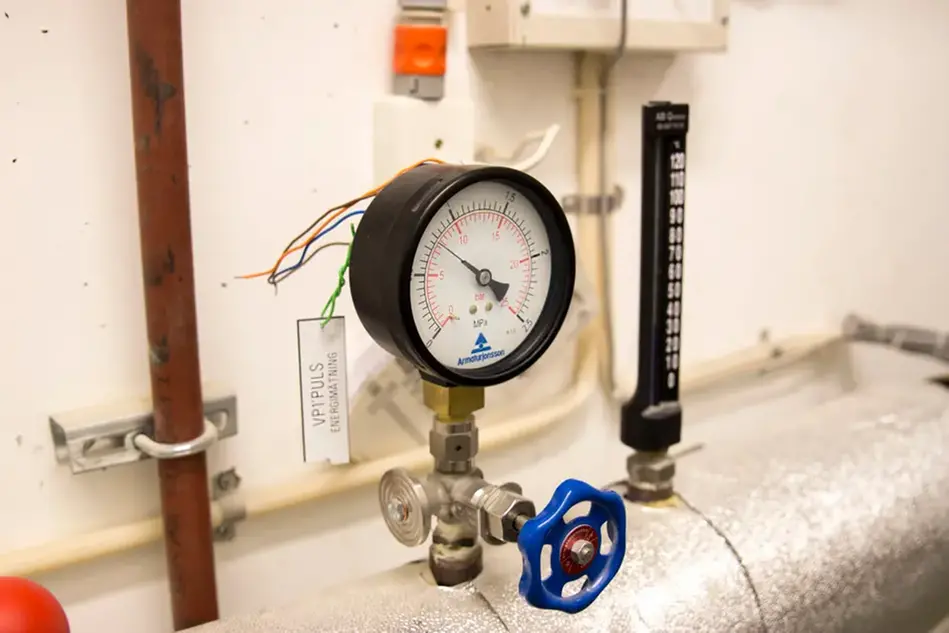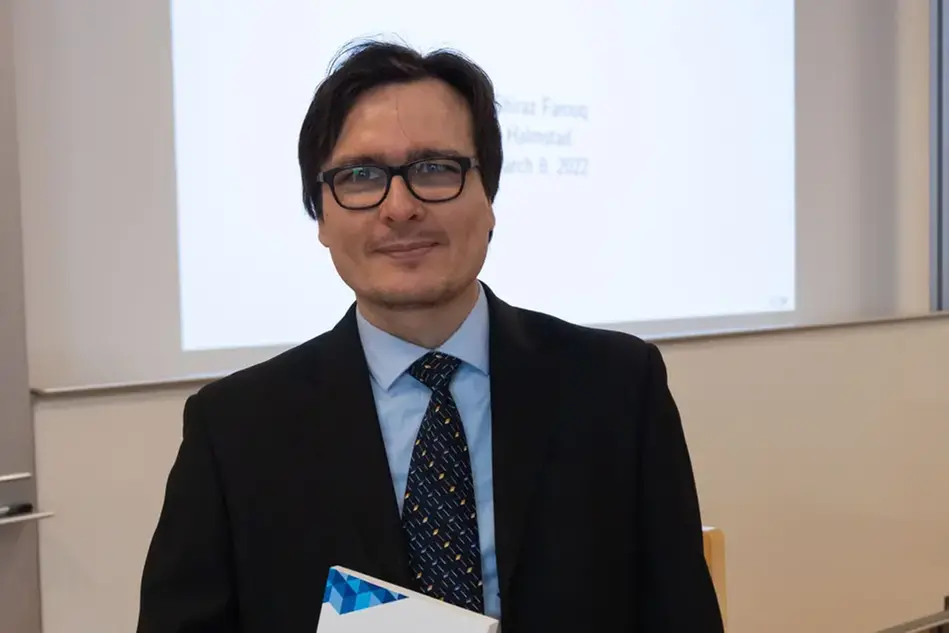Monitoring district heating substations important to the future smart city
Ineffective and incorrect behavior of district heating substations causes unnecessary energy loss. In his recently published thesis, Shiraz Farouq proposes the use of models based on statistical and machine learning techniques as a possible solution to the problem. In this way, the substations can be monitored, irregular patterns can be identified, and operationally ineffective substations can be detected, without overwhelming their operators with numerous false alarms.
“The research will hopefully lead to more efficient ways of using district heating. It contributes to increased sustainability, cost efficiency, and the development of future smart cities.”
Shiraz Farouq
Traditionally, district heating substations are monitored by constructing models based on the individual substation’s historical data. In his research, Shiraz Farouq found that observing other operationally similar substations’ behaviour is also important.
“Substations in a district heating network can be thought of in terms of a fleet, where operationally similar substations constitute sub fleets. Therefore, we developed models based on the idea of collective monitoring, where the behaviour of each substation in a network is tracked by a sub fleet of other similar substations. Any substation that does not behave in accordance with its tracking sub fleet provides a basis to believe that something is wrong”, he explains.

“While technical tools, such as machine learning, are important in solving the problem of energy inefficiency in district heating, they are not the only solution. We need to pair the technical tools with insights from industry through active collaboration”, says Shiraz Farouq.
Framework to reduce false alarms
One of the observations that Shiraz Farouq made was that models based on historical behaviour and the tracking of sub fleets have their strengths and weaknesses. A framework based on a combination model was presented as a remedy to this.
“By fusing the two model constructs, it is possible to reduce false alarms without compromising too much on the detectability of anomalous patterns. We believe that this framework can be adapted to the requirements of various other industrial setups where fleets of units or machines are a common occurrence”, says Shiraz Farouq.
Findings relevant for the future smart city
Shiraz Farouq’s results can not only be applied to the field of district heating, but also to areas that are important for future smart cities, for instance, robotics in industries, truck platoons, wind farming, and substations in electric-utility networks.
“While technical tools, such as machine learning, are important in solving the problem of energy inefficiency in district heating, they are not the only solution. We need to pair the technical tools with insights from industry through active collaboration”, says Shiraz Farouq, who has worked together with the Swedish power company Öresundskraft.
“The largest amount of data for the research comes from Öresundskraft. In addition, valuable insights from both data and discussion with domain experts were obtained from the company Halmstad energi och miljö. Moreover, Halmstad University cooperates with the Smart Energy Collaboration wihtin Disitrict Heating and Cooling, which is a collaboration between various district heating utilities and universities across Sweden. The research work was presented at this forum, and valuable insights were obtained on possibilities and challenges in deploying data-driven approaches at district heating utilities”, he explains.

Shiraz Farouq joined Halmstad University as a PhD student back in 2016, and before that he got a master’s degree in Computational Science at Uppsala University. He now hopes to apply his findings to an industry setting.
Research that makes a positive impact
Shiraz Farouq joined Halmstad University as a PhD student back in 2016, and before that he got a master’s degree in Computational Science at Uppsala University.
“I chose Halmstad University because of its position as an innovation-driven university that aims to contribute towards the betterment of society by solving practical problems in industries and public services”, he says.
The strive to contribute to a better society is also clear in Shiras Farouq’s research goals:
“The research will hopefully lead to more efficient ways of using district heating. It contributes to increased sustainability, cost efficiency, and the development of future smart cities. Energy efficiency is one of the important objectives in the United Nations Sustainable Development Goals for 2030. In this context, the research has a positive impact on the environment, economy, and society.”
Shiraz Farouq now hopes to apply his findings to an industry setting.
“The very reason I chose to pursue doctoral studies was to acquire skills to deal with today’s complex and challenging problems from both the philosophical as well as the scientific point of view. I believe these skills will enable me to make a positive impact in the world”, he sums up.
Text: Christa Amnell
Photo: Ida Fridvall

